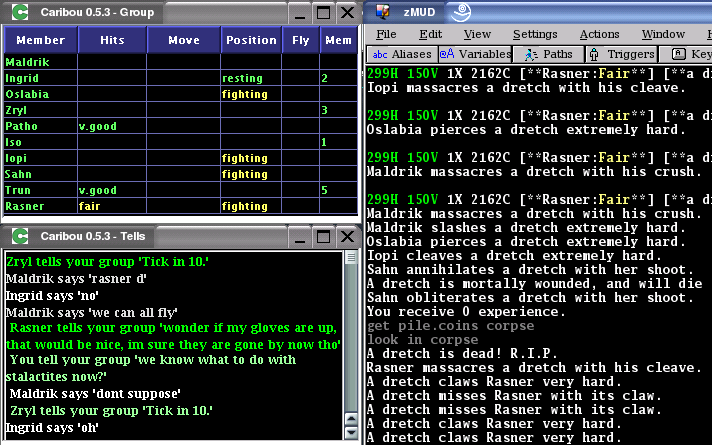

So how do you run it? First, you will need the Java Platform. If you are not familiar with it, you may already have it installed in order to handle applets in your web browser. If you do not have it, you can download the latest Linux, Windows, or Solaris version free from http://java.sun.com/j2se/1.4.2/download.html. If you are running another operating system, please contact your OS vendor or ask me and I will point you in the right direction. What you want is the J2SE v 1.4.x Java Runtime Environment (JRE). You do not need J2EE, the J2SE SDK, or the NetBeans IDE.
So now that you have the JRE installed, you should be able to run caribou by clicking (or doubleclicking, depending on your windowing environment) on the caribou-bin-x.x.x.jar file (where x.x.x is a version number such as 0.5.4). Optionally, you can also run caribou at the command line by typing java -jar /path/to/caribou-bin-x.x.x.jar. If you did not include a log file name, Caribou will prompt you to select a log file as shown below:

